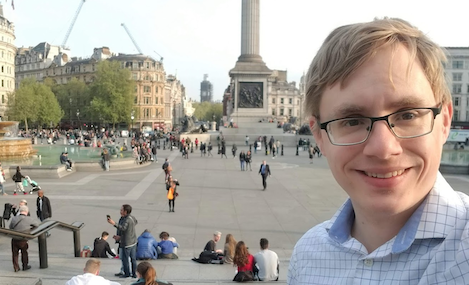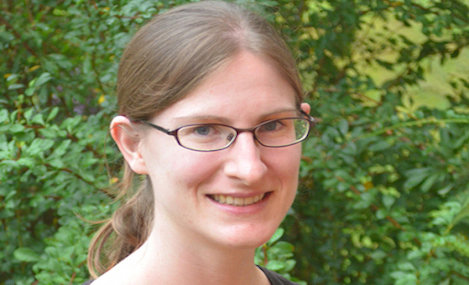Featured Researchers
Debbora Leip
Debbora is a Ph.D. student at the Potsdam Institute for Climate Impact Research in Germany, where she is part of the Land-Use Management working group. Her team focuses on developing and applying the agro-economic partial equilibrium model MAgPIE (Model of Agricultural Production and its Impact on the Environment). Her research centers on "Agricultural Employment in a Sustainable Transformation of the Global Food System". In this context, she has implemented an initial representation of agricultural labor demand into MAgPIE, which she plan to improve further.

Dr. Aline Mosnier
Aline is the Scientific Director for the FABLE (Food, Agriculture, Biodiversity, Land-use, and Energy) Pathways Consortium. She works with country teams to develop rigorous quantitative national pathways towards sustainable land use and food systems by 2050. Prior to joining SDSN, Aline worked at the International Institute for Applied Systems Analysis (IIASA) where she contributed to the development of the global partial equilibrium model GLOBIOM. In particular, her work focused on international trade in agricultural products, indirect impacts of biofuel policies, climate change impacts on agriculture, and deforestation and forest degradation in the tropics. With teams from local research institutes, she has worked on the co-development of regional versions of GLOBIOM in the Congo Basin, Brazil and Indonesia. Finally, she has developed the FABLE calculator, a simplified country-Excel-based accounting tool on the food and land system. Aline holds a PhD in Agricultural and Environment Economics from the University of Natural Resources and Life Sciences of Vienna and a master's in development economics from CERDI-Université d'Auvergne of Clermont-Ferrand.

Dr. Abhishek Chaudhary
Dr. Chaudhary is an Assistant Professor of Environmental Engineering and Management at the Indian Institute of Technology (IIT) Kanpur since December 2018. His areas of research include Environmental Management, Biodiversity Conservation, One Health and Sustainability Data Analytics. He has published over 60 peer-reviewed scientific articles in international journals (including Nature and The Lancet) fetching over 12,000 citations so far and has presented research in more than 50 international conferences and media outlets around the globe. He has won several prestigious research awards from organizations such as Swiss National Science Foundation, European Commission, US EPA, IIASA etc.

Dr. Jing Liu
Jing Liu is a Research Economist in the Department of Agricultural Economics at Purdue University, serves as Science Coordinator of the GLASSNET project, and leads the SIMPLE-G Short Course. Her research focuses on the interactions of agricultural activities and water resources, in which she uses quantitative equilibrium and statistical models to evaluate the economic impacts of changing water quantity and quality on food security and environments at both global and local scales. Her current projects investigate the effectiveness of different conservation practices to manage nitrate leaching in the US, as well as the interplay of carbon policy and agricultural conservation policies. Jing is a major contributor of variant versions of the SIMPLE-G models, leads NSF-funded projects to develop SIMPLE-G-China and SIMPLE-G-Brazil, and applies these tools to study the food-energy-water nexus. Jing also works closely with the Center for Global Trade Analysis at Purdue University, which coordinates the Global Trade Analysis Project (GTAP).

Dr. Justin Andrew Johnson
Justin is an Assistant Professor of Applied Economics at the University of Minnesota. He received his Ph.D. in 2014 from Applied Economics at the University of Minnesota and his B.A. in economics from St. Olaf College. Justin works closely with the Natural Capital Project at The Institute on the Environment, University of Minnesota and Stanford University. Justin’s research focuses on how the economy affects the environment, and vice versa, on global to local scales. Currently, Justin leads a project that links the Global Trade Analysis Project (GTAP) out of Purdue University with the Integrated Valuation of Ecosystem Services and Tradeoffs (InVEST) model from the Natural Capital Project, aiming to build strong quantitative evidence on how changes in ecosystem services affect economic performance at the macroeconomic level and how global policies can be designed to sustainably manage our natural capital. In his spare time, Justin is an avid board game designer.

Dr. Iman Haqiqi
Iman is a Research Economist at Center for Global Trade Analysis at Purdue University. He conducts policy-relevant research on the interaction of social and environmental systems addressing major sustainability and resilience challenges regarding international agricultural trade, land use, water resources, and climate change. He studies food security and environmental sustainability employing cutting-edge methods in coupling natural-human systems. The strength of his research is a global-to-local-to-global approach that considers economic feedbacks and local conditions. Recently, he coupled a global Water Balance Model with a global land-use model and a partial equilibrium trade model to establish an advanced framework in which he explores the consequences of a pandemic like COVID-19 co-occurring with heat and water stress.

Dr. Danielle Grogan
Danielle is a Research Assistant Professor in the Earth Systems Research Center at the University of New Hampshire. Her work focuses on the role of water resources in global food security, and the complex systems dynamics that develop within agricultural water networks. Dr. Grogan also studies the role of winter and cold region climate change in shifting hydrologic regimes, and the intersection of climate and policy in water resource management. Hydrologic modeling and the development of interdisciplinary model systems forms the basis of Dr. Grogan’s research methods. She is a Co-PI for GLASSNET and a member of the Leadership Team.

